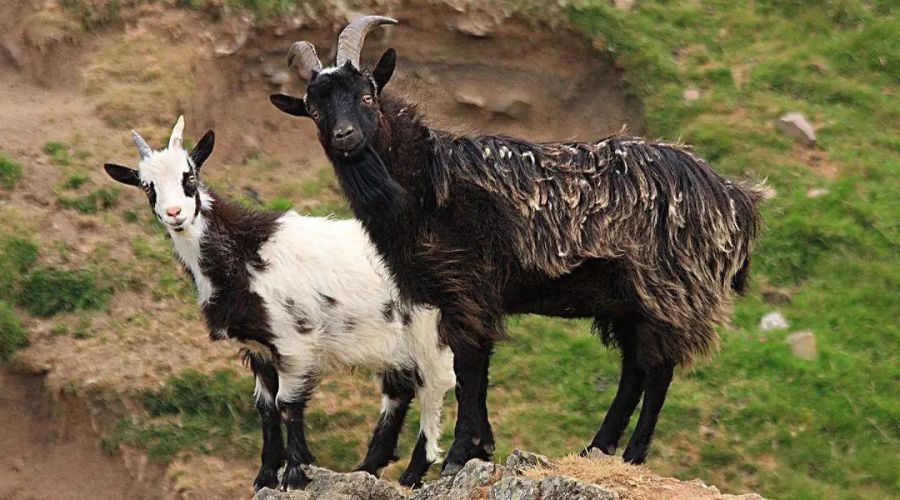Ancient wild goat from Northumberland added to rare breeds watchlist
21st July 2024
A wild herd of Cheviot goats from Northumberland has been added to a watch list of rare breeds.

Its population, which is estimated at just 450, lives in the Cheviot Hills in Northumberland and is connected with the ancient domesticated goats.
Cheviot goats, which are considered an “authentic remnant” of Britain’s original primitive goats, have been added to the Rare Breeds Survival Trust (RBST) watchlist to support their conservation.
According to a legend, the goats of the Cheviot Hills originated when the monks of Lindisfarne abandoned their monastery in 875AD alarmed by the threat of further Viking invasion.
Herding their livestock along with them, they moved south, taking St Cuthbert’s body to his eventual resting place in Durham, but the goats were too capricious and were left to roam in the Cheviots, the charity said.
Added to feral population category
From the 450 Cheviot goats, including the wild herd and animals held by private breeders and for conservation grazing schemes, only 86 females produced offspring in 2023.
The goat has been added to the feral population category, which recognises the breed as a rare native feral population and support its conservation.
Christopher Price, chief executive of the RBST, said: “They are a crucial link to the UK’s original primitive goats that were so relied upon by generation after generation, from the Bronze and Iron Ages, through medieval times and up to the smallholders of the 19th and early 20th centuries.”
He added that without the isolated feral College Valley Cheviot herd, these genetics would have been lost “irretrievably”.
The Cheviot is considered excellent for conservation grazing – the practice of using livestock to graze land in ways that specifically support wildlife and habitats.
The list is the RBST’s annual report on the conservation status of native UK livestock and equine breeds, highlighting those which are most endangered.
Read more livestock news.
